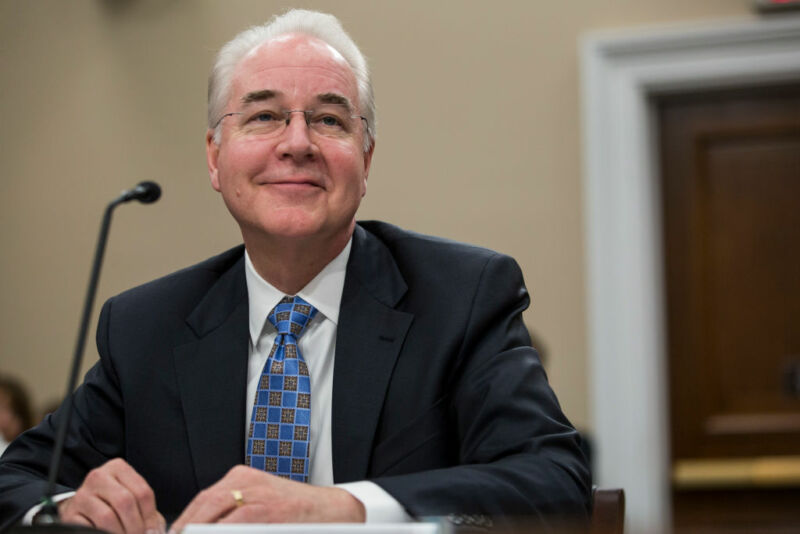
Enlarge / Former Secretary of Health and Human Services Tom Price was a member of the AAPS, an organization with extreme, unscientific views who keeps being asked to give testimony to Congress. (credit: Zach Gibson / Getty Images)
On Tuesday, the US Senate's Committee on Homeland Security and Governmental Affairs will host a hearing on treatments for COVID-19. The four witnesses all have MDs, and three of them work at hospitals, suggesting that this is a case where the Senate will be receiving information from people with relevant expertise. It's the fourth witness, however, that suggests some of the testimony may go completely off the rails and raises further doubts that US politicians are taking a raging pandemic seriously.
Jane Orient has an MD and is the head of a serious-sounding organization called the Association of American Physicians and Surgeons (AAPS). But a quick look at the group's history shows that it has adopted positions—such as promoting chloroquine and opposing government vaccination programs—that make it a questionable source of COVID-19 information. And the AAPS actually has a long history of adopting extreme and fringe positions that run contrary to all evidence, in part because of its opposition to government involvement in anything. But because of these libertarian tendencies, the group has maintained a close relationship with conservative politicians.
Bad pandemic advice
It doesn't take much searching to determine that the AAPS has fringe views about the pandemic. In late April, evidence was developing that hydroxychloroquine, a malaria drug, wasn't effective against COVID-19, leading the FDA to scale back its emergency approval. Four days after that decision, the AAPS sent out a press release claiming that the drug "has about 90 percent chance of helping COVID-19 patients." That claim was false at the time—it was apparently based simply on counting any studies that saw any effect toward that 90-percent total. And subsequent studies have clearly indicated the drug is ineffective.
No comments:
Post a Comment